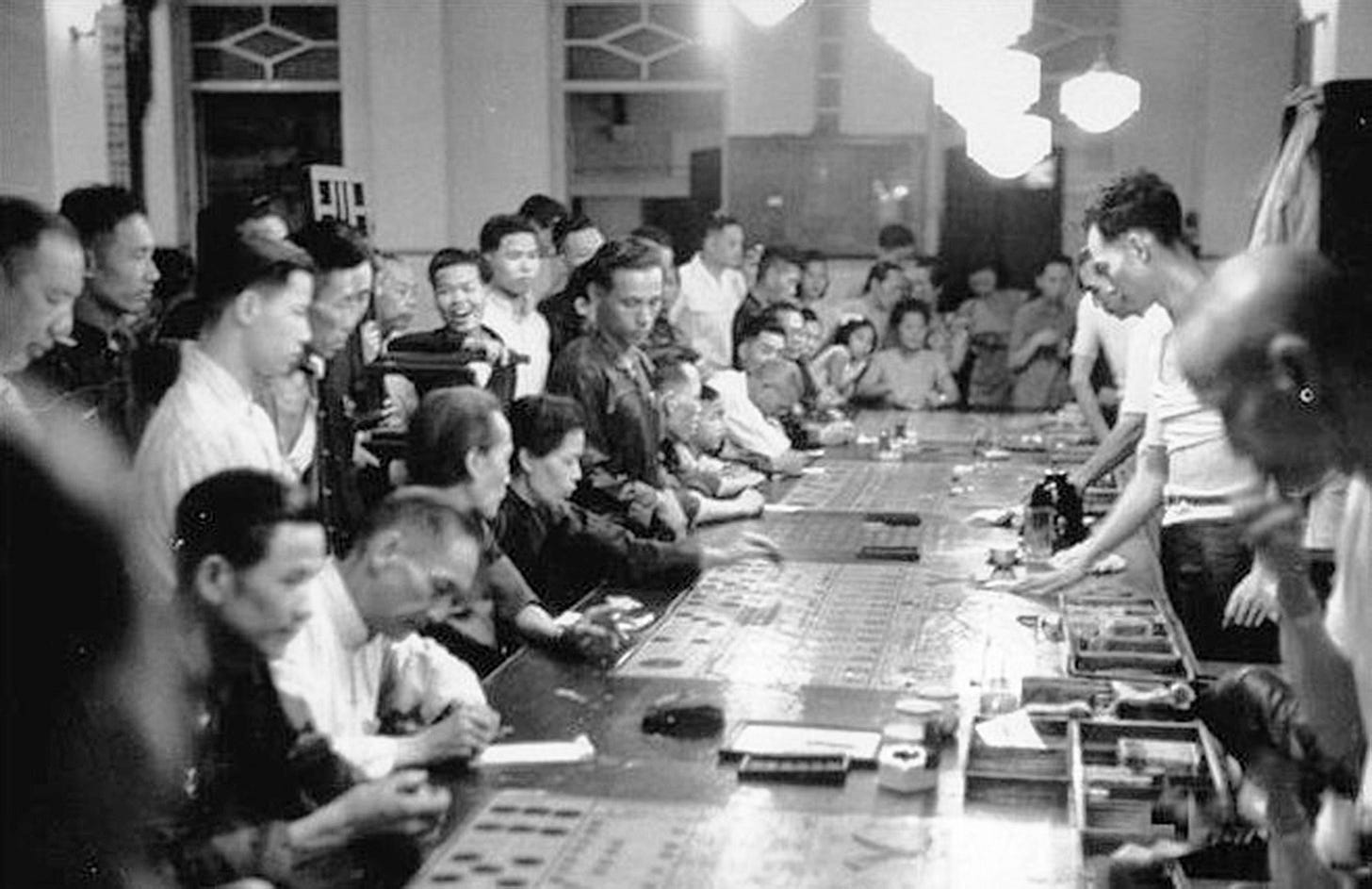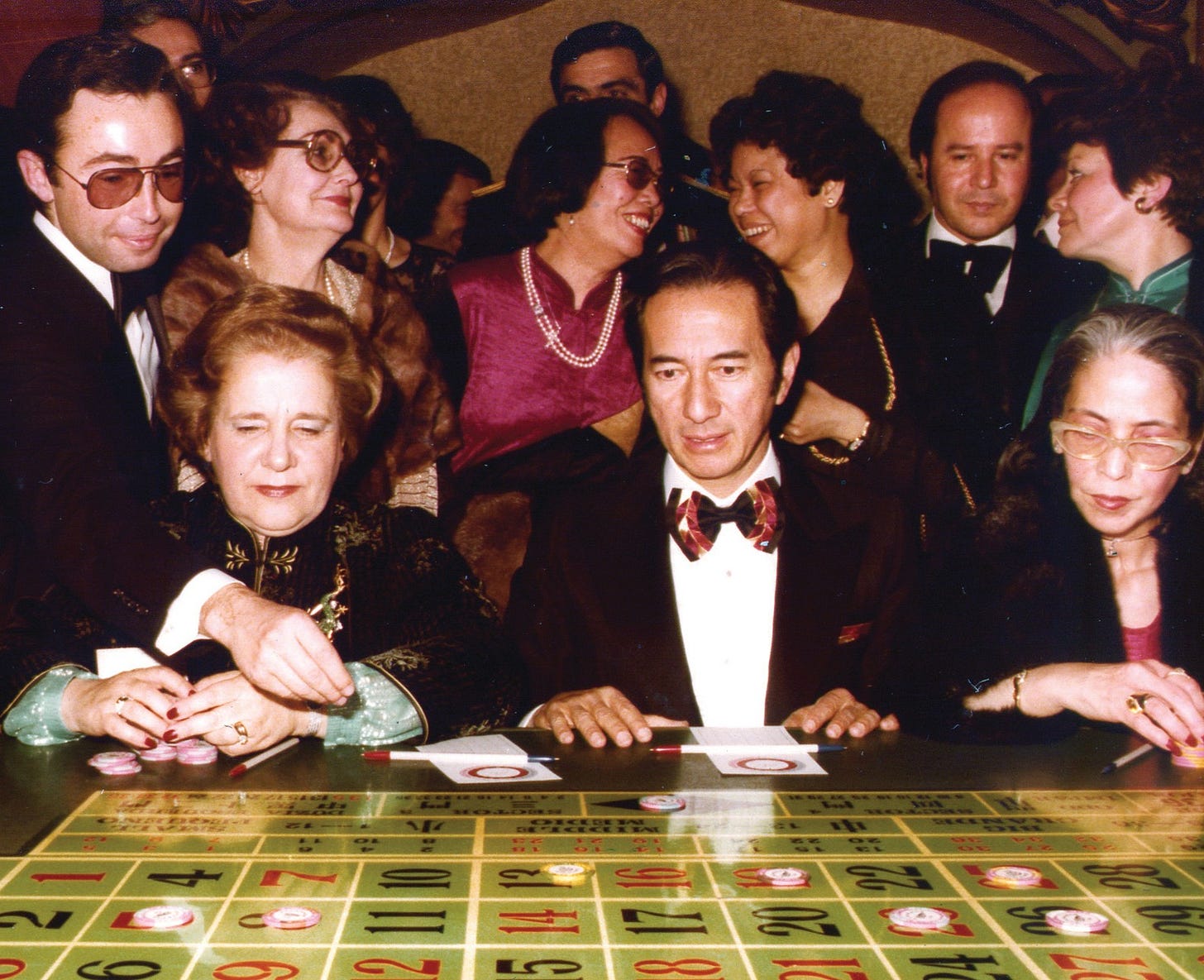Macau Casino Industry 2025: Betting Big on Mass Market Recovery and Post-COVID Reinvention
Or How I Learned to Stop Worrying and Love the Premium Mass
Good Evening,
Welcome back to Panda Perspectives, where we go beyond the headlines to unpack the real forces shaping Asia’s capital flows. Today, we step into the neon-lit world of Macau, where baccarat tables, government policy, and premium mass punters all converge in a high-stakes experiment in post-COVID reinvention. The chips are down, the licenses are renewed, and the question for investors is simple: who’s holding aces, and who’s bluffing with a weak hand? Let’s try to figure it out.
Before we do though, this is a paywalled report for the subscribers of the blog. Do please join up if you’re interested - we’d love to have you!
Next week we’ll start an exploration fo a brand new industry for us - the Pharmaceutical sector. Which will be followed by Semiconductors. Both of those sectors we’ve been putting off for some time, and it’s time to take the medicine and just go for it. Again most of that will be paywalled, so if you are interested do join up.
Speaking of milestones, we’re just shy of hitting 1,000 subscribers, which is very neat. To celebrate, we’ll be giving the 1,000th subscriber a complimentary 3-month pass to the paid section of the Substack. And yes, we’re planning to make this a tradition for every thousandth subscriber going forward.
Serious about investing in Asia? Then your process needs more Panda.
We get it, for some readers, a Substack alone isn’t enough. If you’re looking for sharper insights, personalised feedback, or just someone to help you cut through the noise in China and Asia, we also offer bespoke research calls and strategy sessions.
Right now, we’re working with clients on China’s consumer landscape, the 2Q25 macro outlook, and yes robotics.
See what we offer here, and connect with us today or message us directly.
Nothing in this Substack is Investment Advice. This information is provided for informational purposes only and does not constitute financial, investment, or other advice. Any examples used are for illustrative purposes only and do not reflect actual recommendations. Please consult a licensed financial advisor or conduct your own research before making any investment decisions. The authors, publishers, and affiliates of this content do not guarantee the accuracy, completeness, or suitability of the information and are not responsible for any losses, damages, or actions taken based on this information. Past performance is not indicative of future results.
Macau's casino industry stands as the world's largest gaming market by revenue, demonstrating remarkable resilience following the unprecedented challenges of the COVID-19 pandemic. In May 2025, the territory achieved a significant milestone with gross gaming revenue (GGR) reaching MOP$21.2 billion, marking a 5% year-over-year increase and setting a new post-pandemic monthly record. This performance represents 82% of pre-pandemic levels, signaling a robust recovery trajectory.
The industry's current state reflects a fundamental transformation from its pre-COVID structure. Mass market gaming has emerged as the dominant segment, recovering to approximately 115% of pre-pandemic levels, while VIP gaming remains constrained at roughly 30% of historical norms. This shift has prompted operators to refocus their strategies toward premium mass market customers and non-gaming amenities, fundamentally altering the competitive landscape.
Six major concessionaires dominate the market following the 2022 license renewals: MGM China, Sands China, Wynn Macau, SJM Holdings, Galaxy Entertainment, and Melco Resorts. These operators are navigating a complex regulatory environment that emphasizes diversification beyond gaming, enhanced compliance requirements, and increased focus on local employment and community development.
Looking ahead, the industry faces both opportunities and challenges. Positive indicators include easing travel restrictions, a strengthening Chinese yuan, and robust visitor recovery patterns. However, ongoing macroeconomic uncertainties, regulatory transitions including satellite casino restructuring, and the need for continued diversification present significant considerations for investors and operators alike.
Historical Development and Evolution
Early Foundations and Colonial Period (16th Century - 1960s)
Macau's gaming industry traces its origins to the 16th century when the territory first opened its harbor to international visitors and traders. During this early period, gaming activities were informal and largely unregulated, consisting primarily of traditional Chinese games operated by individual entrepreneurs throughout the territory's streets and commercial areas. The prevalence of gaming among harbor workers, domestic helpers, and expatriate Chinese construction workers established gambling as an integral component of Macau's social and economic fabric.
The formal legalization of gambling in 1847 marked a pivotal moment in the industry's development, as Portuguese colonial authorities sought to diversify the territory's economic base following Hong Kong's emergence as a competing trading port. This decision reflected pragmatic governance considerations, as gaming taxes provided essential revenue for territorial administration while accommodating established cultural practices among the local population.
By the 1850s, Macau hosted over 200 "Fan tan" stalls, establishing the territory's reputation as a gaming destination and earning the moniker "Monte Carlo of the Orient." The late 19th century witnessed substantial growth in gaming operations, with gaming taxes becoming the government's primary revenue source and cementing gambling's central role in Macau's economic structure.
The introduction of organized gaming concessions began in 1930 with the "Hou Heng Company," led by Fok Chi Ting, receiving exclusive rights to operate all recognized casino game varieties. This marked the beginning of Macau's concession system, which would define the industry's structure for the subsequent nine decades. Hou Heng's innovations included lavish casino renovations, complimentary entertainment and refreshments for patrons, and comprehensive customer service initiatives that established templates for modern casino operations.
The STDM Monopoly Era (1962-2001)
The establishment of Sociedade de Turismo e Diversões de Macau (STDM) in 1962 initiated a transformative period that would define Macau's gaming industry for four decades. Founded by Stanley Ho Hung-sun, Henry Fok, Ip Hon, and Terry Ip Tak Lei, STDM secured the exclusive gaming concession through a competitive bidding process that displaced the incumbent Tai Heng Company.
STDM's monopoly period was characterized by systematic expansion and modernization of gaming operations. The company's first casino, "Casino Estoril," opened in 1962, followed by the iconic Lisboa Hotel and Casino in 1970, which became synonymous with Macau's gaming industry and established architectural and operational standards that influenced subsequent
developments.
During the STDM era, the company introduced more than ten different gaming varieties, including slot machines, blackjack, boule, and cussec, alongside traditional Chinese games. This diversification reflected both evolving customer preferences and STDM's strategic vision to position Macau as a comprehensive gaming destination capable of attracting diverse international markets.
The monopoly period also witnessed the integration of gaming with other entertainment and hospitality services, including horse racing, greyhound racing, and various lottery operations. STDM's acquisition of the Macau Jockey Club in 1990 and subsequent introduction of pachinko in 1998 demonstrated the company's commitment to comprehensive entertainment offerings that extended beyond traditional casino gaming.
Current Market Structure and Competitive Landscape
Keep reading with a 7-day free trial
Subscribe to Panda Perspectives to keep reading this post and get 7 days of free access to the full post archives.








